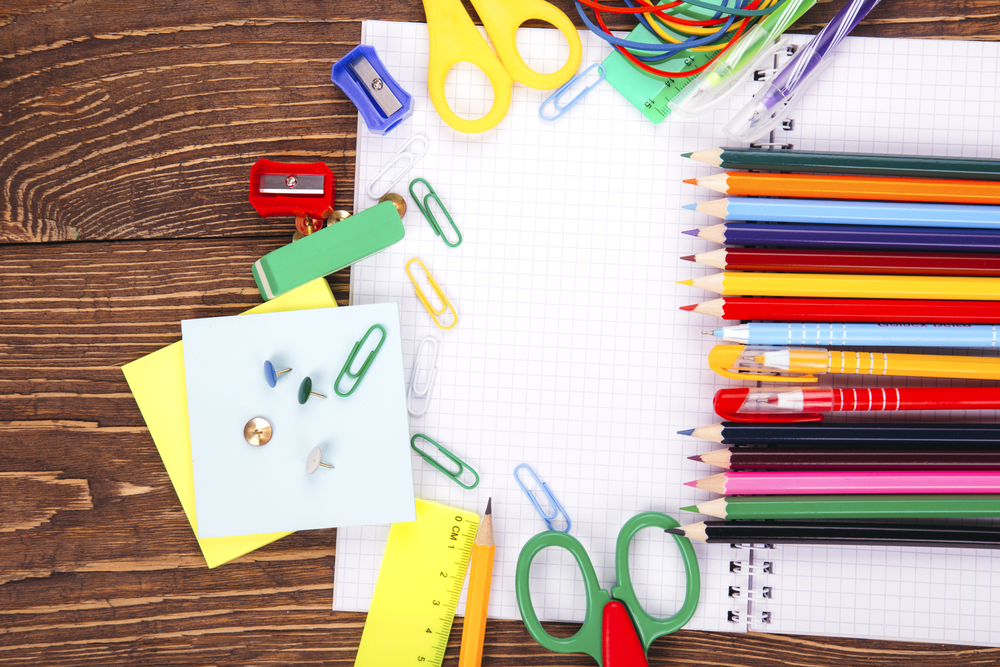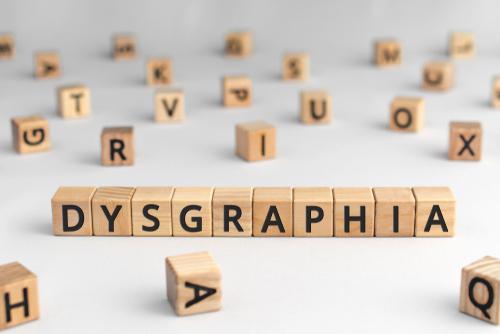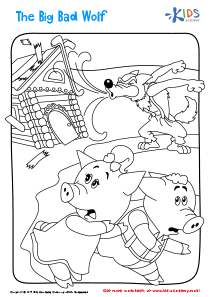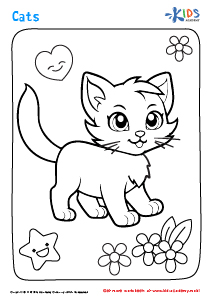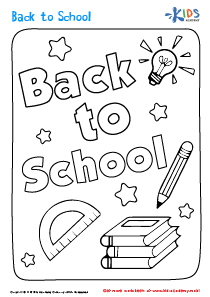Word Recognition Coloring Pages Worksheets for Ages 4-6
3 filtered results
-
From - To
Explore our engaging Word Recognition Coloring Pages Worksheets designed specifically for ages 4-6! These fun and educational resources aim to help young learners develop essential literacy skills while igniting their creativity. Each worksheet combines playful illustrations with familiar words, encouraging children to color and recognize key vocabulary. Perfect for home or classroom use, these worksheets promote letter recognition, enhance phonemic awareness, and boost vocabulary comprehension. Additionally, they foster fine motor skills as kids practice coloring within the lines. Encourage a love for learning and support your child's readiness for reading with our delightful Word Recognition Coloring Pages! Perfect for budding readers!
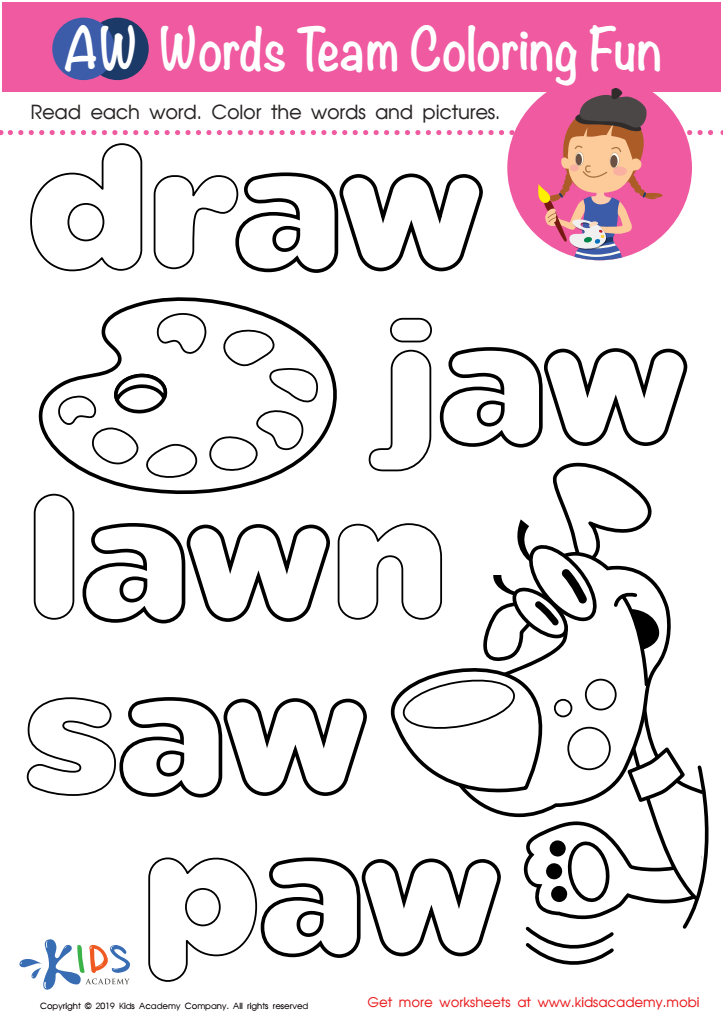

AW Words Team Coloring Fun Worksheet
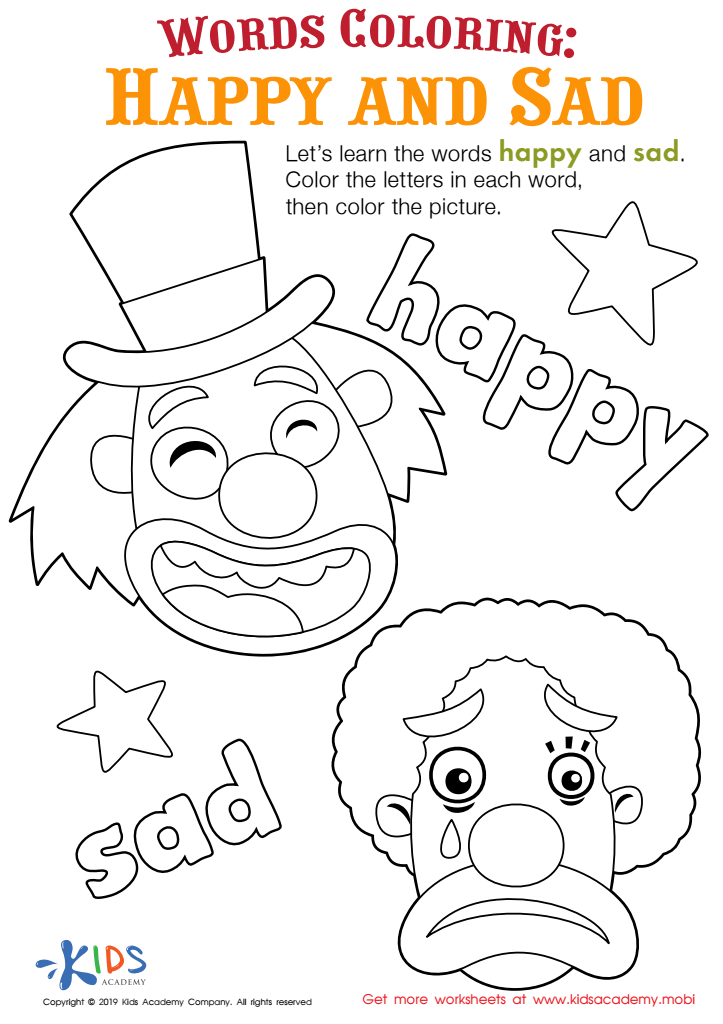

Happy and Sad Words Coloring Worksheet
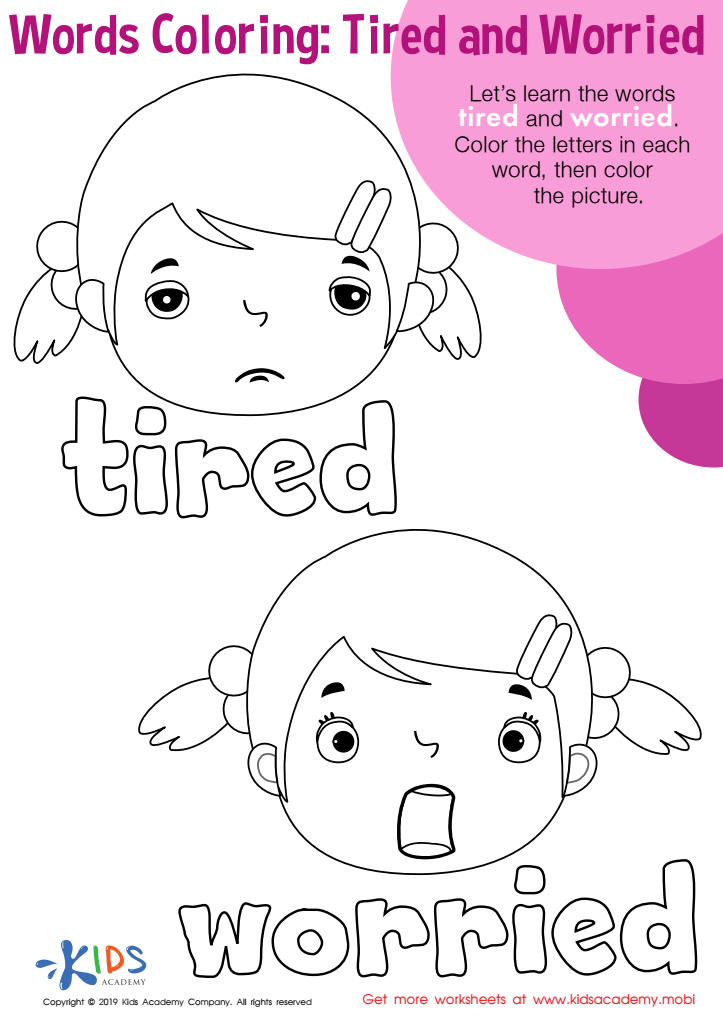

Tired and Worried Words Coloring Worksheet
Word Recognition Coloring Pages for ages 4-6 play a vital role in early childhood literacy development. These engaging activities combine fun and learning, making them an effective tool for parents and teachers. First, they help preschoolers and kindergarteners build essential pre-reading skills. By associating words with images in a colorful, interactive format, children can reinforce their vocabulary and improve their ability to recognize commonly used words.
Additionally, coloring while learning promotes fine motor skills. As children grasp crayons or markers, they develop hand-eye coordination, which is crucial for writing later on. The creative element also encourages self-expression and can boost a child's confidence as they proudly display their colorful creations.
Moreover, Word Recognition Coloring Pages facilitate shared learning experiences between parents and children, strengthening family bonds while enhancing educational development. This collaborative approach enables parents to actively participate in their child's reading journey, making learning more dynamic and enjoyable.
In a world increasingly driven by digital media, utilizing tactile materials like coloring pages offers a necessary break from screens and encourages a hands-on approach to learning. By incorporating these resources into their educational toolkit, parents and teachers promote not only literacy but also critical developmental skills essential for lifelong learning.

 Assign to My Students
Assign to My Students





